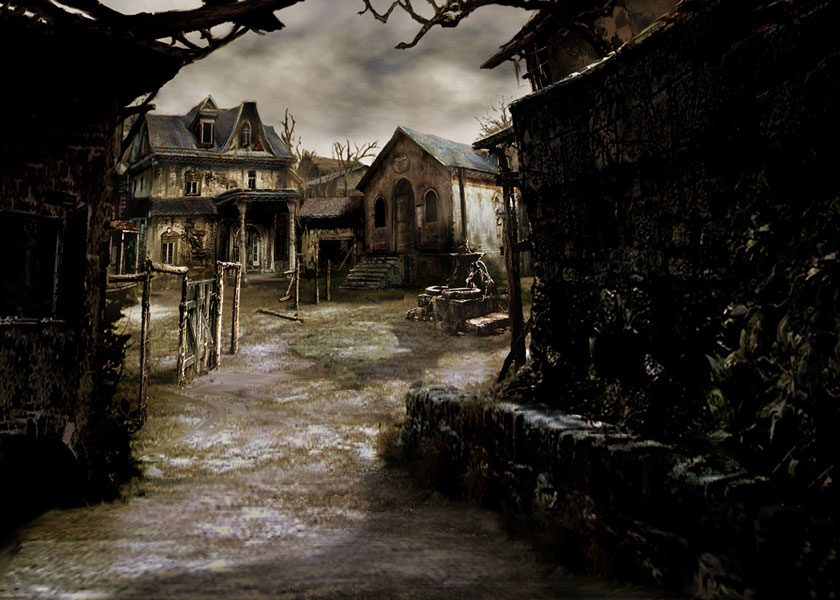A Few Comments on Resident Evil 4
February 15th, 2013
Last year, my brother played Resident Evil 4 for the first time. After he finished the game, we discussed it over IM. Here are some of the key points from our conversation:
Moving and Shooting
Not being able to move and shoot does several things to the gameplay:
- it forces the player to find a spot and bunker down, creating a stop ‘n pop style of shooting.
- it makes Leon vulnerable, forcing the player to consider the surrounding environment and locations of the enemies and formulate a plan of attack.
- it creates a tug of war over the ground between Leon and the enemies (spatial dynamic). The player wants Leon to keep his distance, while the enemies attempt to close in on him. This push-pull relationship contributes to the inhale-exhale flow of the shoot-outs.
- it removes the clutter of moving while shooting (as moving throws off aiming).
–
Spatial Dynamic and Fly-Kicking
- The closer the enemies are to Leon, the easier they are to shoot, but the more likely they are to attack him (spatial dynamic and risk/reward).
- Leon can gain ground by stunning and then fly-kicking enemies, but they need to be close to him/he needs to run over to them to execute the attack (risk/reward).
- The cool down after the fly-kick, where the player has no control over Leon, balances the mechanic and extends the risk/reward.
–
Tension
The game builds tension by either:
- limiting the size of the play area and thereby the distance between Leon and the enemies
- adding more enemies to overwhelm the player
- increasing the Ganado’s armour (interplay)
- increasing the number of directions enemies can approach from (adaption skills, multitasking)
These methods squeeze more skill out of the player.
Camera and Viewpoint
- The camera is brought in close so that it’s both claustrophobic and functional. This is a neat throwback to the fixed camera angles of the original games.
- The laser sight helps to distinguish depth.
–
Interplay
- Most shooters have weak interplay: you just shoot an enemy and they die, and if they don’t die, you shoot them a few more times to make sure. In Resident Evil 4, the player can shoot to stun, which then opens up opportunities to execute special attacks.
- The enemies also have interplay with one another. For example, if a Ganado is knocked into a group of other Ganados, it’ll push the whole group backwards.
- The organic interactions between enemies feeds back into the interplay between Leon and the enemies, creating deeper and more emergent interactions.
- Because each body part causes the enemy to react differently when shot, the body maps the potential interplay and strategic options. The designers can then tweak the availability of certain strings of interactions by covering up certain parts of the body (armour plates, for instance).
–
Game Speed
- The game speed is slowed right down so as to give the player enough time to deal with the hordes of Gonados. The large number of enemies make the relative time faster. So although the player has more time, they need to do more in that time.
–
Quick Time Events
- QTEs are only used in contextual situations or when regular interactions aren’t possible (ie. cutscenes). In this way, they add more interactivity to the game. Many games now tend to use QTEs to subtract interactivity.
If you liked Resident Evil 4, then you should totally check out Vanquish. It’s a different type of shooter, but you can certainly feel the lineage between the two games. I’ll be writing about that game soon enough.




 Game Design Companion: A Critical Analysis of Wario Land 4 - $7.99
Game Design Companion: A Critical Analysis of Wario Land 4 - $7.99 Level Design: Processes and Experiences
Level Design: Processes and Experiences Speed Boost: The Hidden Secrets Behind Arcade Racing Design - $5.99
Speed Boost: The Hidden Secrets Behind Arcade Racing Design - $5.99 Adventures in Games Analysis: Volume I - $5.99
Adventures in Games Analysis: Volume I - $5.99







